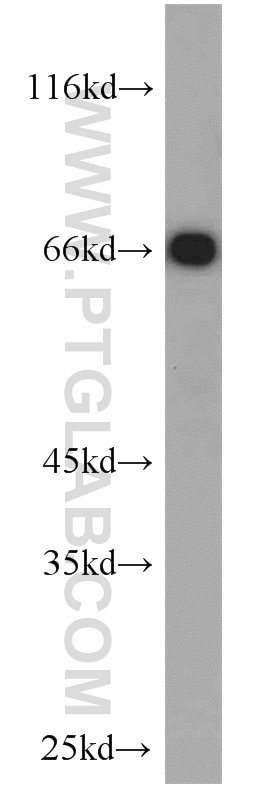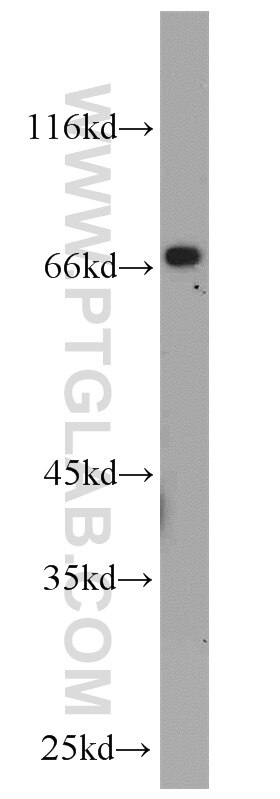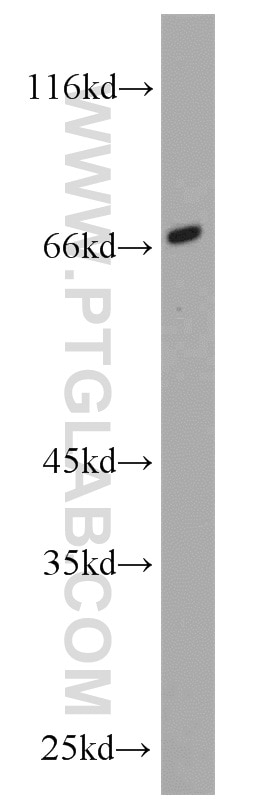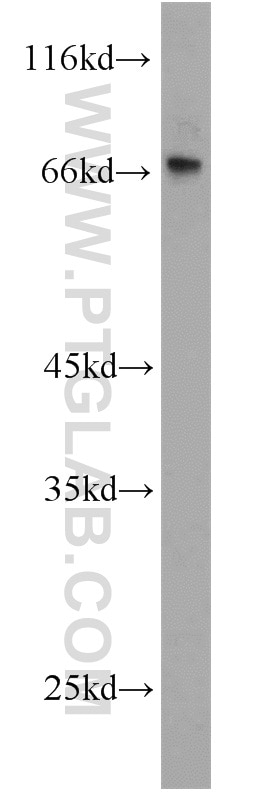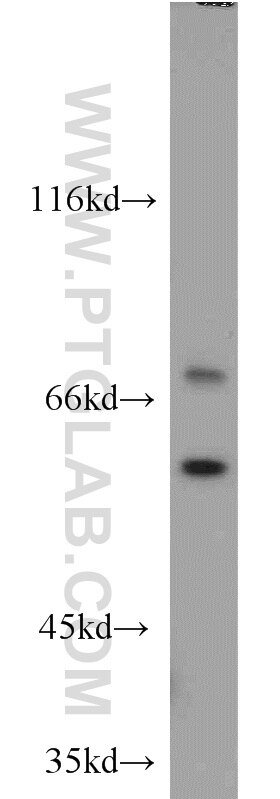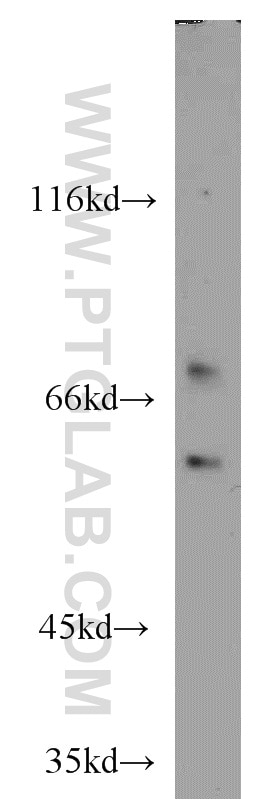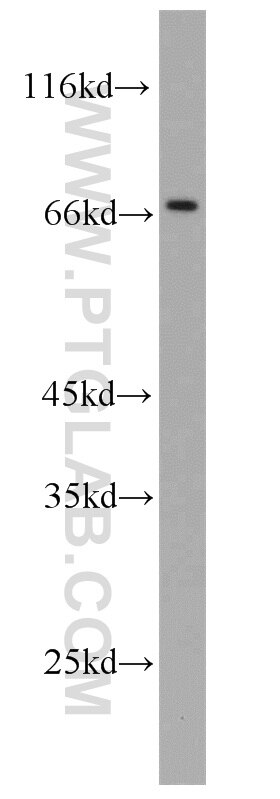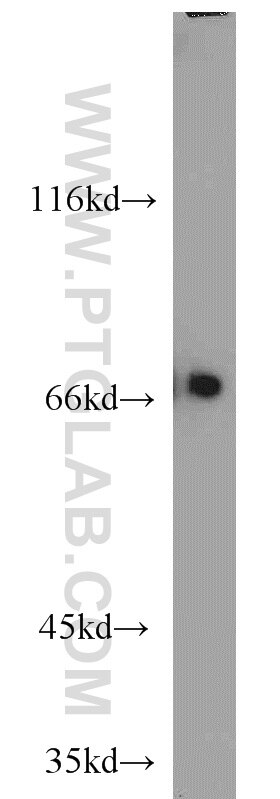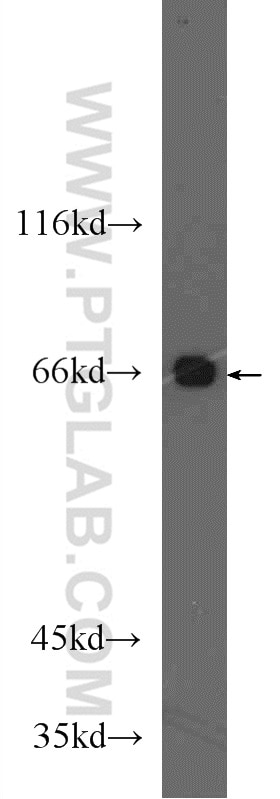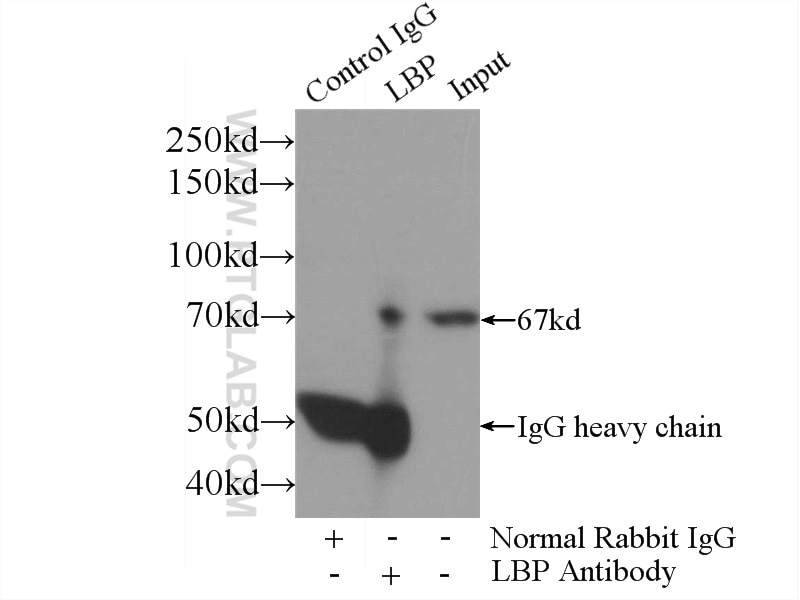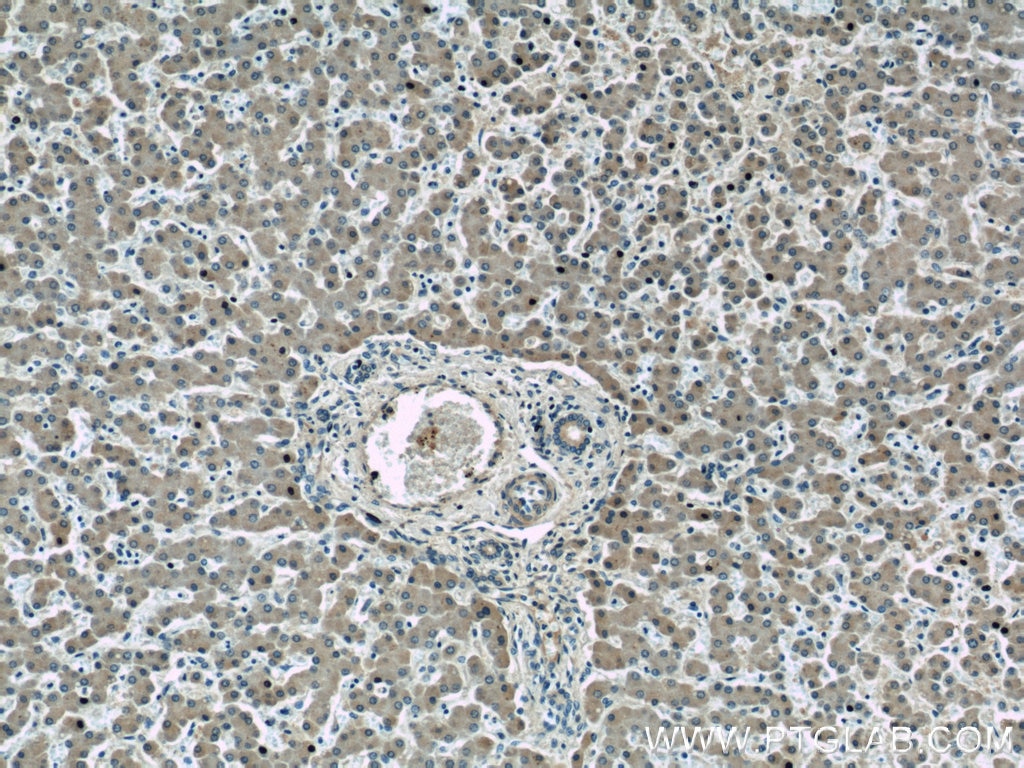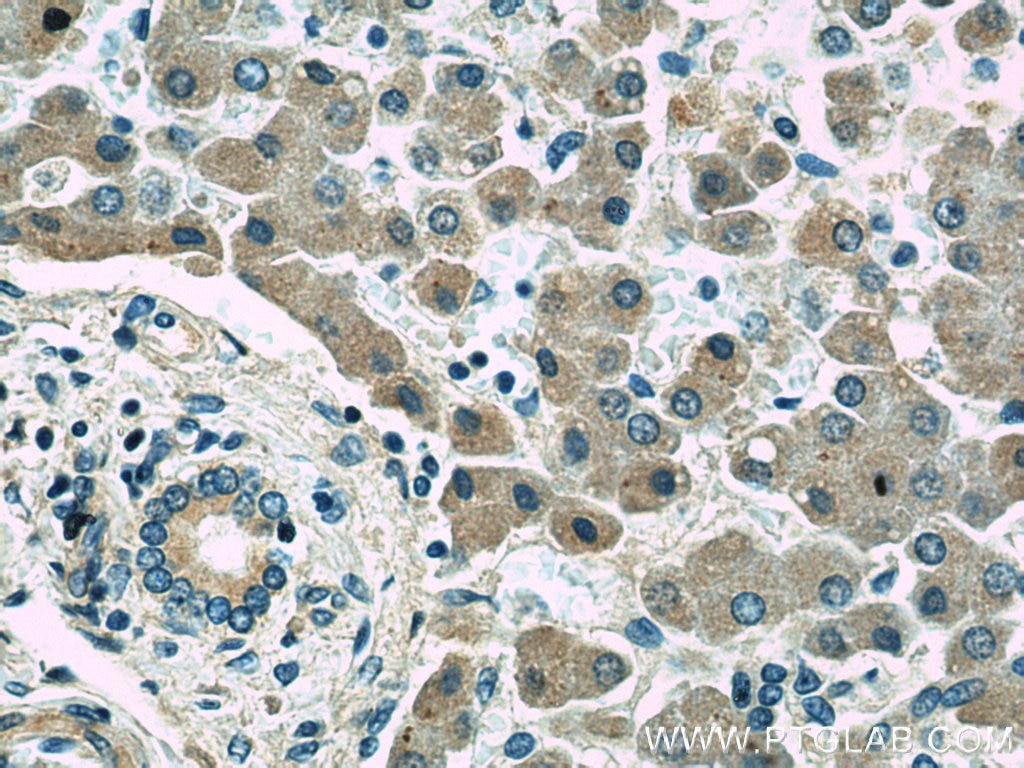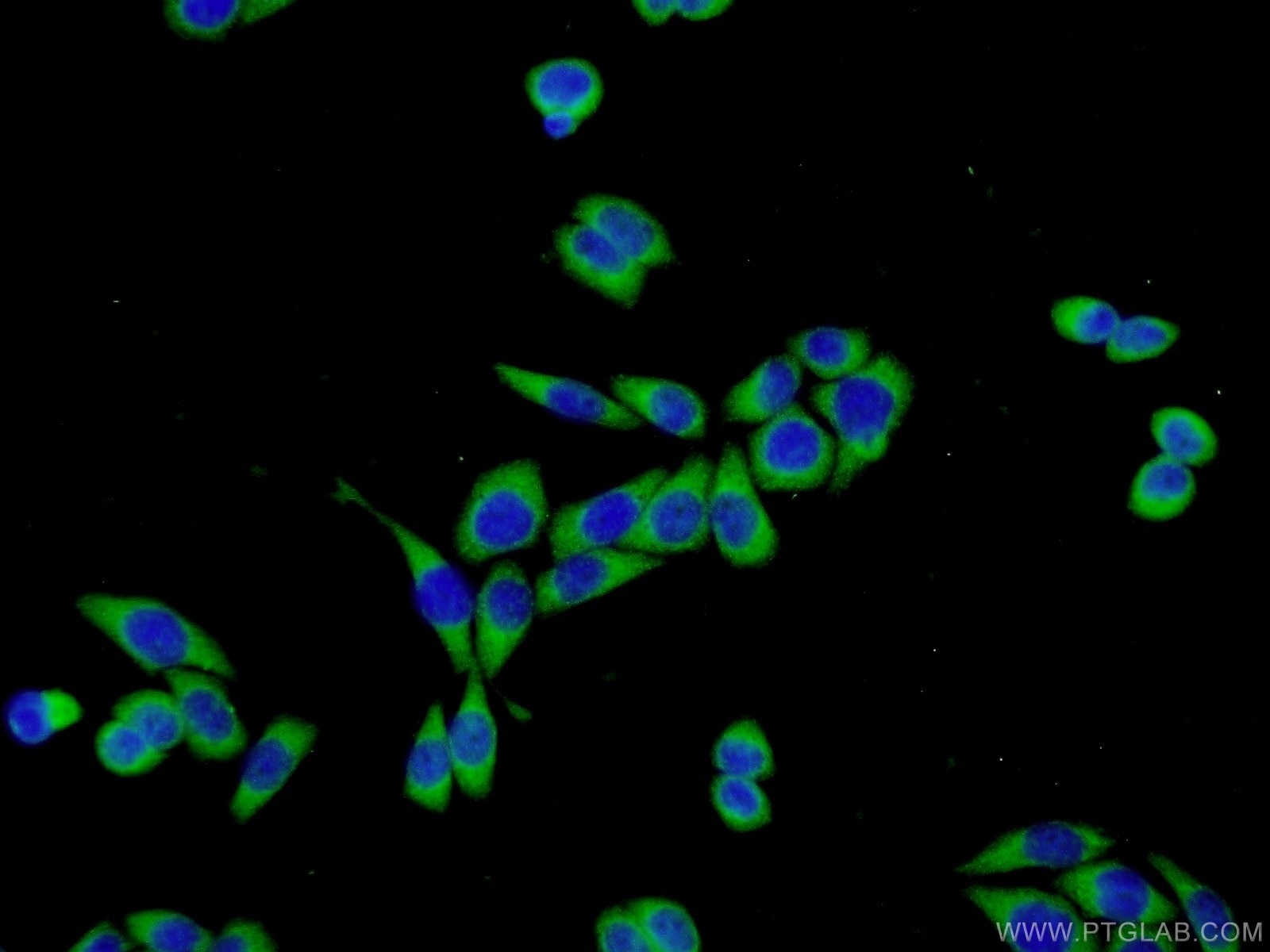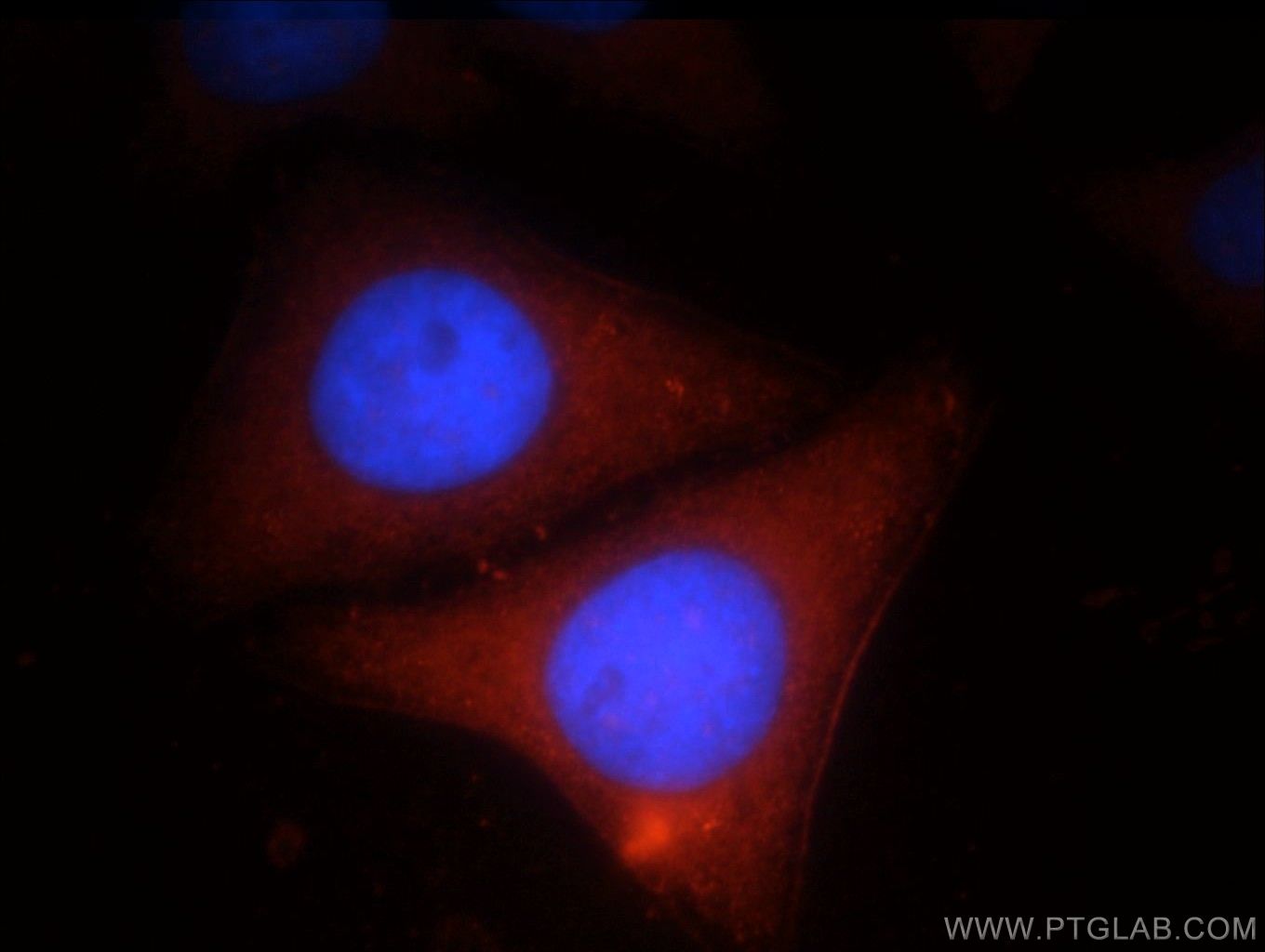LBP Polyklonaler Antikörper
LBP Polyklonal Antikörper für WB, IHC, IF/ICC, IP, ELISA
Wirt / Isotyp
Kaninchen / IgG
Getestete Reaktivität
human, Maus, Ratte
Anwendung
WB, IHC, IF/ICC, IP, ELISA
Konjugation
Unkonjugiert
Kat-Nr. : 11836-1-AP
Synonyme
Geprüfte Anwendungen
| Erfolgreiche Detektion in WB | Mauslebergewebe, A431-Zellen, A549-Zellen, HeLa-Zellen, Jurkat-Zellen, L02-Zellen, Rattenlebergewebe |
| Erfolgreiche IP | Mauslebergewebe |
| Erfolgreiche Detektion in IHC | humanes Lebergewebe Hinweis: Antigendemaskierung mit TE-Puffer pH 9,0 empfohlen. (*) Wahlweise kann die Antigendemaskierung auch mit Citratpuffer pH 6,0 erfolgen. |
| Erfolgreiche Detektion in IF/ICC | L02-Zellen, HepG2-Zellen |
Empfohlene Verdünnung
| Anwendung | Verdünnung |
|---|---|
| Western Blot (WB) | WB : 1:500-1:2000 |
| Immunpräzipitation (IP) | IP : 0.5-4.0 ug for 1.0-3.0 mg of total protein lysate |
| Immunhistochemie (IHC) | IHC : 1:50-1:500 |
| Immunfluoreszenz (IF)/ICC | IF/ICC : 1:20-1:200 |
| It is recommended that this reagent should be titrated in each testing system to obtain optimal results. | |
| Sample-dependent, check data in validation data gallery | |
Veröffentlichte Anwendungen
| WB | See 1 publications below |
| IHC | See 1 publications below |
Produktinformation
11836-1-AP bindet in WB, IHC, IF/ICC, IP, ELISA LBP und zeigt Reaktivität mit human, Maus, Ratten
| Getestete Reaktivität | human, Maus, Ratte |
| In Publikationen genannte Reaktivität | human, Ratte |
| Wirt / Isotyp | Kaninchen / IgG |
| Klonalität | Polyklonal |
| Typ | Antikörper |
| Immunogen | LBP fusion protein Ag2431 |
| Vollständiger Name | lipopolysaccharide binding protein |
| Berechnetes Molekulargewicht | 481 aa, 53 kDa |
| Beobachtetes Molekulargewicht | 63-67 kDa |
| GenBank-Zugangsnummer | BC022256 |
| Gene symbol | LBP |
| Gene ID (NCBI) | 3929 |
| Konjugation | Unkonjugiert |
| Form | Liquid |
| Reinigungsmethode | Antigen-Affinitätsreinigung |
| Lagerungspuffer | PBS with 0.02% sodium azide and 50% glycerol |
| Lagerungsbedingungen | Bei -20°C lagern. Nach dem Versand ein Jahr lang stabil Aliquotieren ist bei -20oC Lagerung nicht notwendig. 20ul Größen enthalten 0,1% BSA. |
Hintergrundinformationen
LBP belongs to the BPI/LBP/Plunc superfamily and BPI/LBP family. It binds to the lipid A moiety of bacterial lipopolysaccharides (LPS) which is a glycolipid present in the outer membrane of all Gram-negative bacteria. The LBP/LPS complex seems to interact with the CD14 receptor. LBP is involved in the acute-phase immunologic response to gram-negative bacterial infections. In many tissue/cells, we get 53-60 kDa and 63-67 kDa(Glycosylation form).
Protokolle
| PRODUKTSPEZIFISCHE PROTOKOLLE | |
|---|---|
| WB protocol for LBP antibody 11836-1-AP | Protokoll herunterladen |
| IHC protocol for LBP antibody 11836-1-AP | Protokoll herunterladenl |
| IF protocol for LBP antibody 11836-1-AP | Protokoll herunterladen |
| IP protocol for LBP antibody 11836-1-AP | Protokoll herunterladen |
| STANDARD-PROTOKOLLE | |
|---|---|
| Klicken Sie hier, um unsere Standardprotokolle anzuzeigen |
Publikationen
| Species | Application | Title |
|---|---|---|
J Neurosurg Association of decreased levels of lipopolysaccharide-binding protein with OKN-007-induced regression of tumor growth in an F98 rat glioma model. | ||
Cancer Sci Circulating exosomes contain protein biomarkers of metastatic non-small-cell lung cancer. | ||
J Biomed Mater Res A The characteristic regulation of gene expression Lbp and Sod3 in peri-implant connective tissue of rats. |
